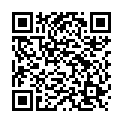|
|
|
| Module code: KIM-QC |
|
|
2V+2P (4 hours per week) |
|
5 |
| Semester: 1 |
| Mandatory course: no |
Language of instruction:
German |
Assessment:
[updated 23.09.2025]
|
KIM-QC (P221-0216) Computer Science and Communication Systems, Master, ASPO 01.10.2017
, semester 1, optional course
PIM-QC (P221-0216) Applied Informatics, Master, ASPO 01.10.2017
, semester 1, optional course
PIM-QC (P221-0216) Applied Informatics, Master, SO 01.10.2026
, semester 1, optional course
|
60 class hours (= 45 clock hours) over a 15-week period.
The total student study time is 150 hours (equivalent to 5 ECTS credits).
There are therefore 105 hours available for class preparation and follow-up work and exam preparation.
|
Recommended prerequisites (modules):
None.
|
Recommended as prerequisite for:
|
Module coordinator:
Dipl.-Physiker Michael Meßner |
Lecturer: Dipl.-Physiker Michael Meßner
[updated 03.04.2025]
|
Learning outcomes:
After successfully completing this module, students will be familiar with the physical principles of quantum computing.
They will be familiar with the differences between quantum computers and classical computers.
They will know what a quantum bit is and understand how it is represented mathematically.
They will be able to visualize a quantum bit in the Bloch sphere.
Students will be able to perform transformations on qubits.
They will be able to visualize a transformation in the Bloch sphere.
They will be familiar with the properties of transformations.
They will know that transformations are implemented using gates.
Students will be able to handle multiple quantum bits in a quantum register.
They will be able to perform transformations on a quantum register.
They will be familiar with the Quantum Composer and know how to program it.
They will understand the visualization of the quantum bit state.
Students will be aware of the importance of measurement in quantum computing.
They will be familiar with the basic algorithms for quantum gate computers.
They will understand the necessity of error correction algorithms for qubits.
Students will be able to build circuits for quantum gate computers.
They will be able to analyze circuits mathematically.
They will be familiar with the mathematical framework for handling qubits and transformations.
They will be able to simulate a quantum circuit using the Quantum Composer.
They will be able to operate the Quantum Composer.
Students will be able to run a quantum circuit on an IBM quantum computer.
They will be able to create a simple program with Qiskit and run it on a quantum computer.
Students will be familiar with several algorithms.
They will be able to apply error correction algorithms.
[updated 23.09.2025]
|
Module content:
1. Introduction
2. Physics
3. Classic computer
4. Quantum bit
5. Quantum gate/transformation
6. Quantum register
7. Quantum register gate/transformation
8. IBM Quantum Composer
9. Basics
10. IBM Quantum Platform
11. Entanglement
12. Algorithms
13. Measurement
14. Error correction
[updated 23.09.2025]
|
Recommended or required reading:
Quanten Computing, Vorlesung Winter 2020/2021, Jochen Rau, Goethe Universität Frankfurt(Main)
Quantentechnologien, Vorlesung Winter 2020/2021, Jochen Rau, Goethe Universität Frankfurt(Main)
Quantum Computing verstehen, Matthias Homeister, Springer Vieweg, 6. Auflage, 2022
[updated 23.09.2025]
|


